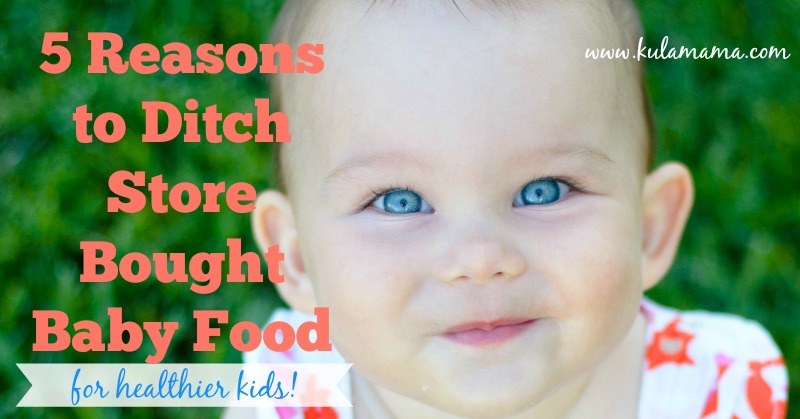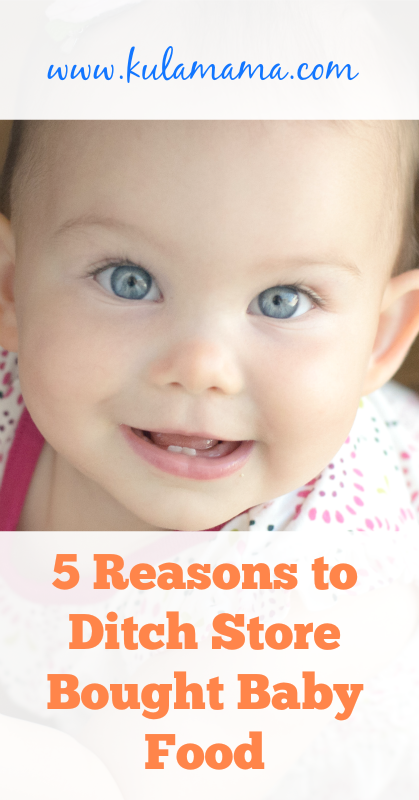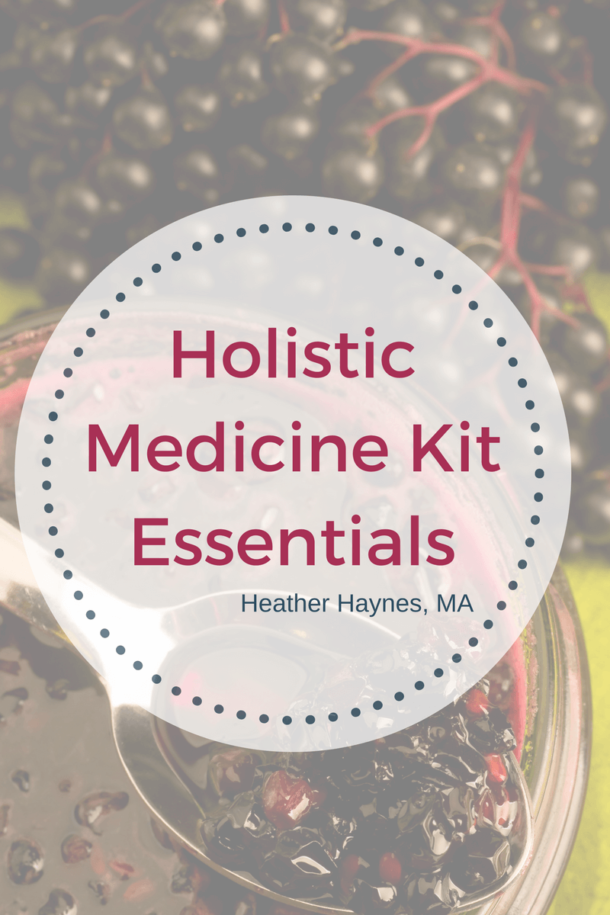People are surprised to learn that I made both my babies homemade baby food from scratch. “You mean you cook 3 MEALS A DAY??!!” They ask me in a tone similar to one they might use if I told them I was moving to Iowa to take up farming. Like the work needed to make homemade baby food ranks up there with plowing a field. I assure you, it’s not as intimidating as it might sound. When my babies were babies, they usually ate 3 organic homemade meals and 2 snacks prepared by yours truly. Sounds like I’m a boring food purist you don’t want to hang out with? Yeah, I understand. If I read the sentence above I wouldn’t want to eat around me either…WHAT AN ORGANIC COOKING MANIAC. Trust me, I’m not. Occasionally our busy schedules sent me running to the freezer to defrost a quick meal for my little ones…courtesy of Plum Organics, not Kula Mama. I’m human and life gets busy sometimes. But for the most part I chose to ditch store bought baby food in favor of the homemade variety–and here’s why.
5 Reasons to Ditch Store Bought Baby Food.
Reason #1: Organic homemade baby food makes kids smarter. Ok, ok I can’t guarantee your child will be smarter if he eats organic baby food but homemade organic baby food has a higher nutrient content so it can’t hurt, right? Studies show that organic produce has higher levels of vitamin C and antioxidants than conventional produce. Scientists guess this could be due to conventional farming practices that encourage quick, high yields. Growing extra large tomatoes at the speed of light (as a random example) saturates produce with sugar and water which may decrease nutrient content. What about organic baby food in a jar? I’m afraid the news isn’t great. The process used to prepare organic baby food for grocery store shelf life includes heating the food at high temperatures to kill bacteria. Unfortunately, the high heat also kills many vitamins and nutrients as well.
Reason # 2: Organic homemade baby food won’t increase a child’s risk of cancer. Why? Because organic food is free of pesticides, the chemicals that put infants more at risk for cancer, nervous system toxicity, reproductive and hormonal disorders. Maybe it’s common knowledge that conventional produce is grown with farming methods that use pesticides and insecticides while organic farming practices do not use these substances. But here are a few (lesser known) reasons I’m convinced organic produce is worth the higher price point (for infants and children in particular):
- Two popular organophosphorus (OP) pesticides used on conventional produce, malathion and chlorpyrifos, interfere with nerve function and can cause behavioral disturbances.
- The Environmental Working Group, non-profit environmental research group in Washington DC, points out that the brain of a newborn child develops quickly and is particularly sensitive to toxic substances. Because of their susceptibility to developmental toxicity, infants exposed to the chemicals found in conventional baby food are more at risk for cancer, nervous system toxicity, reproductive and hormonal disorders.
- According the Environmental Defense Fund, a non -profit environmental group committed to solving environmental problems reports that more than 1 million children ages 1 to 5 consume a minimum of 15 pesticides a day from conventional fruits and vegetables. Of these 1 million plus children, at least 600,000 eat amounts of OP pesticides from fruits and vegetables that the federal government deems unsafe!
- The National Academy of Sciences conducted a five-year study and concluded in 1993 that government standards for pesticides in food do not account for the special vulnerability of infants.
- Farmers on conventional farms have been shown to have a higher rate of cancer and there are also suggestions that pesticides may be linked to Parkinson’s disease and Lou Gehrig’s disease.
- The Environmental Working Group and the National Academy of Sciences support infants receiving more protection from pesticides in food and water.
What is particularly disturbing about conventional baby food and infants is the fact that infant’s bodies are smaller and they metabolize food more quickly than adults. Marion Nestle, author of What to Eat and recipient of the Lifetime Achievement Award from the James Beard Foundation, recommends choosing organic food options because small children are “exposed to proportionately greater amounts of chemicals that act as neurotoxins, endocrine disruptors, and carcinogens.” Because of their size, these chemicals will cause more harm in children than in adults.
There is good news, however. Because children are able to metabolize food at a quicker rate, they are also able to eliminate pesticides and insecticides from their system at a faster rate when organic food is introduced to their diets. A study done at the University of Washington monitored the diets of 23 elementary school children to research the effect of organic diets. Researchers replaced conventional diets with organic diets over a 15-day period. The amount of OP pesticides in the children’s urine dropped almost immediately when organic diets were introduced and then rose again when the conventional diets resumed.
What’s in a jar of conventional baby food?
The Environmental Working Group (EWG) analyzed conventional baby food samples from leading manufacturers to find out how many pesticides infants eat. EWG found 16 different pesticides in the 8 baby food items they tested. Of those 16 pesticides, “three are probably human carcinogens, five are possible human carcinogens, eight are neurotoxins, five are endocrine disruptors, and five are categorized as oral toxicity 1 chemicals, the most toxic designation.” Fruit samples contained more pesticides than vegetable samples- with pears, peaches and applesauce leading the pack.
Reason #3: Our babies aren’t lab rats. Really, they aren’t! So why would we feed them conventional food containing genetically modified organisms (GMOs)? I’d prefer science experiments containing non-food genes and bits of pieces of insect and human genetics stay out of my baby’s food thank you very much. The United States is one of the only countries that does not require conventional food makers to identify GMOs in food (WHY?!). Homemade organic baby food does not contain GMOs. Enough said.
Reason #4: Babies get used to mom’s cooking. Trust me, it’s an acquired taste. Children’s eating habits and opinions about nutrition form early and stay with them for life so early exposure to a wide variety of healthy food is key. A child’s palate is forming in the womb, so what mama ate while pregnant will influence his food preferences as well. The more you expose your baby to your style of cooking early, the better chance your toddler or preschooler will continue to eat mom’s cooking.
Reason #5: Mama knows if her kid starts stealing cars later in life it won’t be because she jacked him up on chemicals and preservatives. Whew, you can rest easy.
Interested in some of our favorite baby food recipes? Both my kids loved these between the ages of 6-18months (ish)
Baby’s First Foods from MIX Wellness
Baby’s First Foods from Loula Natural
First Food for Baby from Healthy Home Economist
Baby’s First Foods from Nourishing our Children
Do you make your own baby food? Why or why not?




My diet is limited to three items for the last few months due to health issues, so I have doubled up on prenatal vitamins and am looking for good foods to feed my 8 month old. He developed eczema after eating jarred baby food so I took him off food till it healed, and now am reintroducing foods to him, but cooking them myself.i was told not to give grains until he is one year old, to give his body time to be able to digest it properly. (Especially due to my family history of GI problems and food sensitivities) Do you have any suggestions for getting the best nutrients into him? I’m not getting any fats or omega in my diet, I’m giving him avocado to help with that. At a loss otherwise.